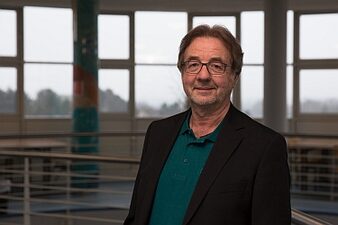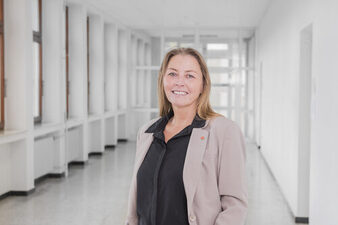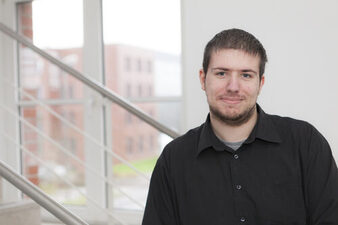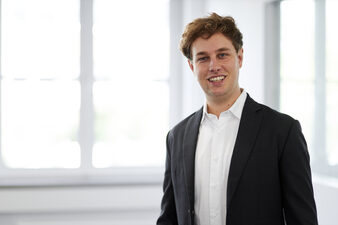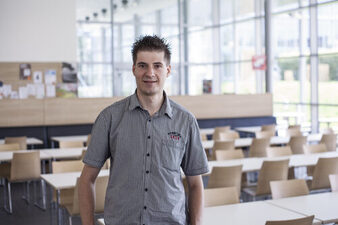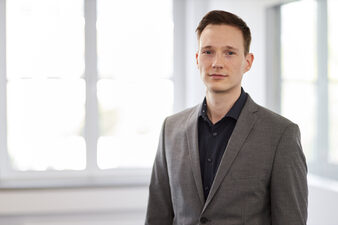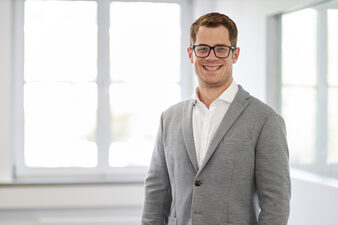About the project
Demographic ageing is one of the key challenges facing society in the coming years. For the society of tomorrow, it is essential to utilize the potential of old age and give people the opportunity to actively participate in social life and shape their own environment well into old age.
Within the "QuartiersNETZ" project, we have focused on the immediate living environment, the so-called (residential) neighborhood. As part of the project, which was successfully completed in autumn 2018, we created new digital and real support services in a sustainable and participatory manner with citizens, service providers and the municipality as stakeholders from the neighborhood.
A digital neighborhood platform was developed as a central element of this, which connects the stakeholders within the neighborhood and provides (digital) services. In four selected reference neighbourhoods in the city of Gelsenkirchen, a version of the platform that can be individually adapted to the respective neighbourhood is being implemented in the project. It is possible to combine the functional modules offered by the four variants with each other across systems. Special attention is paid to the protection of personal data and the dynamic expandability of the system. The foundation for this is an innovative architecture that ensures the distributed operation of heterogeneous neighborhood platforms and the secure exchange of data between them.
In addition, we want to use technology not only to network the players with each other, but also to bring it closer to people as a supportive resource in everyday life. However, older people in particular are often among the most critical and demanding users of technology, even though they could benefit enormously from the support it offers. In order to counteract this dilemma, smart home technologies are being selected, adapted and further developed within the project specifically for the target group of the elderly, immobile and generally less tech-savvy people together with stakeholders from the neighborhoods. A key result of this is the "wish control". This is a modular, pluggable remote control that makes it possible to control an existing smart home infrastructure using haptic input modules. The highlight: the modules can be flexibly plugged onto the remote control and configured so that users can assemble their controls according to the Lego principle in the way they want to control their environment.
In order to be able to try out and experience technology in general and the solutions created in the project in particular, meeting points equipped with appropriate technology were set up for the residents of the individual neighborhoods. The so-called technology meeting points have standardized basic equipment, including smartphones, tablets, notebooks, smart home technology, smart boards and desktop computers. Over the course of the project, this basic equipment was supplemented by an individual focus for each meeting point. In a vote, the residents were able to decide for their respective neighborhood whether they preferred, for example, an equipment focus on "teaching and learning" or "health and independence" for their meeting point. By negotiating with sponsors and the project partner Generationennetz e.V., it has been possible to secure the operation of the meeting points for the next five years, so that people in Gelsenkirchen can be offered sustainable places where they can get to know, try out and also learn about technology.
The sustainability of the technical innovations is to be ensured through a customized business model and the qualification of committed citizens as technology guides. This will make it as easy as possible for interested people in the neighborhood to use new technologies. At the same time, technology development is achieved through joint implementation with the stakeholders in the neighborhood, which ensures that the solutions to be developed are adapted to the wishes and needs of the citizens. Within the project, the transfer to other regions is also directly considered.
The project is funded by the Federal Ministry of Education and Research (BMBF) as part of the funding priority "Health and Service Regions of Tomorrow" (GeDiReMo). Under the leadership of Fachhochschule Dortmund, QuartiersNETZ, together with the project partners Caritas Gelsenkirchen e. V., FoGera e. V., Generationennetz Gelsenkirchen e. V., Pallas GmbH, Quinscape GmbH and the University of Vechta, aims to promote structural change in the Ruhr region.
At the end of the project, five handbooks summarizing the results were published with practical tips, concrete examples and original statements from participating citizens:
Handbook 1:
Urban districts - understanding the framework conditions and recording the initial situation
Handbook 2:
Service structures and supply processes in the neighborhood
Handbook 3:
Developing neighborhood networks with older people
Handbook 4:
Participatory technology development - methodology and examples of implementation
Handbook 5:
Technology support - building initiatives to strengthen the participation of older people in the neighborhood
The books are aimed at interested parties and professionals from local authorities, charities and organizations involved in neighbourhood development for a good life in old age.
The handbooks can be downloaded free of charge from the project website at https://www.quartiersnetz.de/handbuecher(Opens in a new tab) .
Sponsor
Federal Ministry of Education and Research
Funding code
02K12B061
Funding program / Research program
European Regional Development Fund (ERDF)
Cooperation/project partners
- University of Vechta
- Caritasverband Gelsenkirchen e.V.
- Generationennetz e.V.
- Research Institute Geragogics e.V.
- Pallas GmbH
- QuinScape GmbH
Contact & Team
Contact person and management
Team
- Marius Rashid Khan
- Mirco Lammert
Stefan Mehlich, M.Sc.
- +49 231 91128932
Monday - Friday from 8:00 - 16:00

